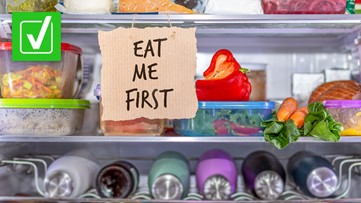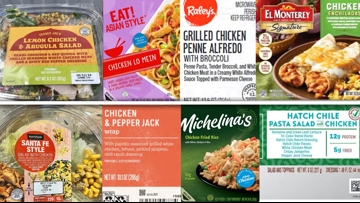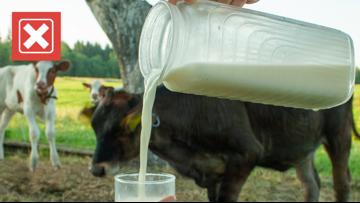THE QUESTION
Are bananas radioactive?
THE SOURCES
THE ANSWER
Yes, bananas are naturally radioactive — but they’re not harmful to eat because the amount of radiation is extremely low.
WHAT WE FOUND
Bananas, like many common foods, do contain some natural radiation. But all of our sources say that eating, handling or being near bananas does not pose a health risk to humans because the amount of radiation found in them is extremely low.
According to the Environmental Protection Agency (EPA) and the Bradbury Science Museum, many foods we eat, including lima beans, potatoes and beer, contain trace amounts of radioactive elements called radionuclides. Some radionuclides occur naturally in the environment, while others are man-made, either deliberately or as byproducts of nuclear reactions.
The EPA says that bananas and Brazil nuts are two of the most well-known examples of foods that contain naturally-occurring radionuclides. That’s because bananas have naturally high levels of potassium (K) and a small fraction of that naturally-occurring potassium (K-40) is radioactive, according to the Canadian Coalition for Nuclear Responsibility.
“Since the bodies of all animals require potassium to function properly, all animals, including humans, are slightly radioactive. It is a fact of life,” the Canadian Coalition for Nuclear Responsibility says. “Bananas and other foods rich in potassium are also radioactive for the same reason.”
So, is it dangerous to eat too many bananas? According to the University of California, scientists measure the amount of damage radiation could do to a human body in sieverts. Eating one average size banana is equivalent to 0.1 microsieverts, which the EPA says is “a very small amount of radiation.”
To put that into context, the EPA explains that a person would need to eat about 100 bananas to get the same exposure as a day of radiation naturally occurring in the environment.
But what about the risk of eating bananas over a lifetime? McGill University says that the body contains potassium as a natural component — about 120 grams — and it maintains that amount of potassium at a constant level.
“Some potassium is always taken in via the diet, and some is always excreted, meaning that there is no buildup of radioactive potassium. So, while bananas are indeed radioactive, the dose of radioactivity they deliver does not pose a risk,” McGill University says.













